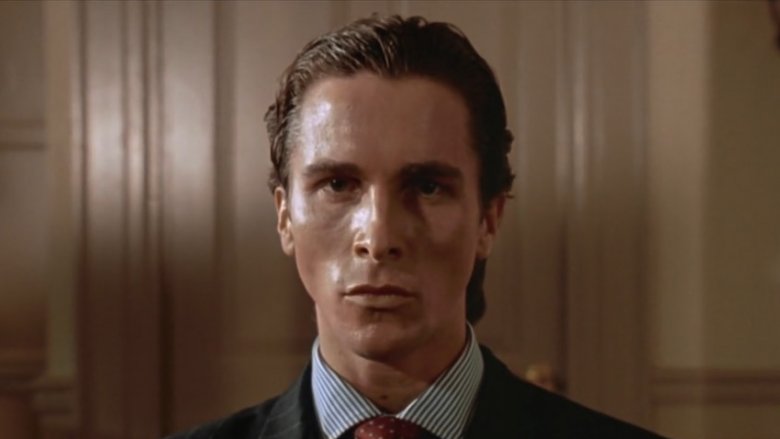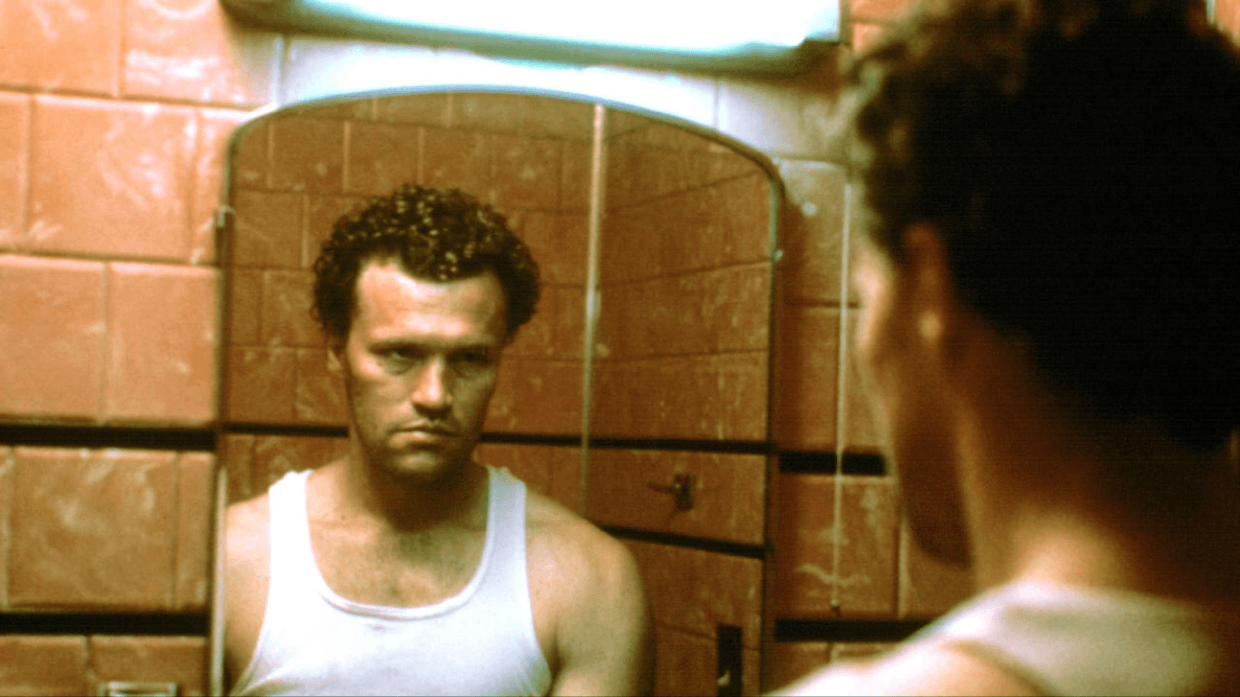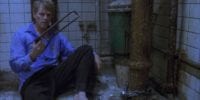Serial killers on-screen make up perhaps the darkest corners of the world of pop culture. The media seems to have always had a perverse fascination with such creatures, as far back as the days of the Penny Dreadful and the tabloid exploits of London’s Jack the Ripper. Whether mystified by their nature, terrified of their crimes, or both, the public just can’t seem to pass up a good serial killer story. Real-life monsters like Ed Gein hold an influence on the horror genre, for example, that just cannot be overstated. His heinous spree of killings and necrophilia served as inspiration for Psycho’s Norman Bates, Texas Chainsaw Massacre’s Leatherface, and The Silence of the Lambs’ Buffalo Bill alone. These are iconoclasts of not just the genre but of film at large, and they could not be replaced. Film history is rife with stories and characters inspired by real-life villains of the worst kind, and here’s a list of my favorite cinematic portrayals of the evil that is the serial killer.
Mickey and Mallory Knox (Natural Born Killers)
The murderous couple that suffered from “sad sickness” and spilled blood across multiple states came screaming to life in Oliver Stone’s Natural Born Killers (1995). Based on real-life spree-killing couple Charles Starkweather and Caril Ann Fugate, this film feels like a dope rush of a fever dream. It’s a mad man’s fantasy that feels like complete and utter chaos. Predicting the world we live in today, it’s an amalgam of media sensory overload, making the audience go on a collective acid trip with two all-American serial killers in love. Oliver Stone (Platoon, JFK) was drawn to the screenplay by Quentin Tarantino (Pulp Fiction, Once Upon a Time in Hollywood) and set out to make a satire about the American media (and public)’s twisted desire to see the serial killer as a sort of rock star.
Flexing their muscles, Woody Harrelson and Juliette Lewis storm the screen like a demented Generation X Bonnie and Clyde. It’s really impossible not to root for Mickey and Mallory, especially when the cops and reporters chasing them are pretty questionable individuals themselves. No matter how many people they mow down with shotguns, their both still seen as the heroes of this film. Looking back does it feel like Natural Born Killers was a little irresponsible?

Yeah, okay. Maybe. My only problem with that assumption is that it decides that all art has a moral responsibility to the viewer and I’m not so sure that I agree. It also ignores the fact that while Natural Born Killers may go really far in pushing the amount of irredeemable violence perpetrated by the film’s protagonists, but that also serves the film’s point about the media’s glorification of the serial killer by itself glorifying a pair of deadbeat low rent idiot spree killers. Thoroughly over the top, Mickey and Mallory Knox are undeniably fun to watch and hard not to root for. Natural Born Killers has survived as one of the most daring and memorable Hollywood films of the 1990s and Mickey and Mallory will go down in history as one of the coolest duos to ever go on a murderous rampage.
Patrick Bateman (American Psycho)

One of the most controversial novels of the 1980s was Brett Easton Ellis’ American Psycho. A scathing look at the toxic male culture of the Me generation of Ronald Reagan’s America, the book dove deep into the mind of Wall Street wolf and erstwhile serial killer Patrick Bateman. Mary Herron and Genevieve Turner (Charlie Says, The Notorious Bettie Page) brought his vision to the big screen in 2000 with the inspired casting of a young Christian Bale (The Dark Knight trilogy, The Machinist) taking on the challenging role of the egomaniacal conformity obsessed, relentlessly bloodthirsty Bateman. In a completely different way than Natural Born Killers, American Psycho still straddles the line between black comedy and outright horror show. The film centers on the theme of toxic competitiveness and makes Patrick Bateman the most volatile of them all.
One single line in the film sums up everything about Bateman, played with a calculated coolness by Bale, who is on fire in the role. The moment when he leans over to his dimwitted fiance Olivia (Reese Witherspoon) and states “I just want to fit in” defiantly before returning back to his Robert Palmer tape is both hilarious and alarming in its implications of the kind of man Patrick Bateman is. The film spends its time lurking inside of Patrick’s head as he reveals that he is a walking sociopath with no empathy or familial relations toward anyone and that he is quite aware of his own inherent madness. He doesn’t want to control it, he wants to be in control of everything and everyone. Patrick Bateman is obsessed with power through control and thinks that he’s the most brilliant person on the planet. He treats the people he interacts with like cockroaches that are infinitely beneath him. This is a common characteristic amongst serial killers, and Bale pulls off a sinister condemnation for everyone every second he’s on screen.

Patrick Bateman himself is wholly unlikeable, but so are all the other Wall Street bros he hangs out with. American Psycho plays from Bateman’s point of view. That skewed perspective presents him as more interesting than his peers, but after a while, it becomes apparent that maybe that’s just how awful he sees everyone around him. He is such a rich and interesting character that is so terrifying and funny, often in the same scene. Christian Bale proved unforgettably maniacal in moments that see Bateman riffing on Huey Lewis and bludgeoning an acquaintance with an ax in the same breath. He is slick, good-looking, all-American, and as Bateman himself would put it, utterly insane.
Henry Lee Lucas (Henry: Portrait of a Serial Killer)

Some stories are just too ghastly and have to be seen to be believed. Such is this case with John McNaughton’s infamous 1990 serial killer opus Henry: Portrait of a Serial Killer. Unlike the first two entries, Michael Rooker (Guardians of the Galaxy vols 1 and 2)’s quietly menacing portrayal of real-life serial murderer Henry Lee Lucas is comedy free. As dark as the Knoxs’ and Patrick Bateman may have been, they had nothing on the twisted mind and deeds of Henry Lee Lucas and his partner in crime Otis Toole (Tom Towles). Henry felt like the most disturbing home video that the audience had accidentally stumbled upon and were forced to sit through at gunpoint. Henry doesn’t so much invite you to watch as it does demand you to.
Michael Rooker is at the center of this low budget shocker that was banned in several countries as part of the infamous video nasty list on release. He plays Lucas calm and quiet, a regular working-class guy that’s a little soft on the eyes. He initially comes off as the level headed of the two between him and Toole, but his anger can go from one to ten in no time with murderous results. Henry’s social outlook makes Travis Bickle seem like a snowflake. It’s the seething intensity that’s bubbling just under the surface that really makes this performance stick with you. Henry Lee Lucas and Toole kill without much rhyme or reason in a disgusting display of power through violence. This film is a great companion to Tobe Hooper’s seminal proto-slasher Texas Chainsaw Massacre. Both films make the audience feel like a fly on the wall of a slaughterhouse.

Henry is a ripped from the headlines film. We know now that many of the crimes attributed to Lucas in Henry were actually carried out by his partner Otis Toole. We also know that even the many murders attributed to Henry Lee Lucas were likely false confessions and stories he made up to further his own notorious reputation. None of these future revelations has lessened the impact of Henry. The film is just as malicious and paints just as grim a portrait of humanity that it did on the day it was released. It still feels real, and that’s in large part due to the all too believable character performance of Michael Rooker.
Arthur Leigh Allen (Zodiac)
John Carroll Lynch (Fargo)’s performance as one time prime suspect in David Fincher (Seven, Fight Club)’s crime epic Zodiac is probably the most debatable entry on this list. Time and forensic science have both proven that Arthur Leigh Allen wasn’t actually the Zodiac Killer, but this is a list of favorite performances and Fincher’s film still plays out as if Allen just got away with the murders in the end. Lynch is a character actor and director who is at the top of his game and really delivers an eerie performance that rises above the rest of this solid film as the most memorable character. His lines are delivered in a quiet, almost childlike way and his presence is soft, yet predatory.
There’s a fantastic scene that plays out with an intensity that elevates Arthur Leigh Allen to the level of boogeyman status in the minds of moviegoers everywhere. The detectives on the case, played by Mark Ruffalo and Anthony Edwards, are interrogating Allen at his job for a lot of concerning statements he allegedly made to his brother-in-law, eerily similar to things that the Zodiac Killer either said or did himself. The Zodiac was, for lack of a better word, playful. He had his cyphers published in the newspaper and he would write letters taunting law enforcement for not being able to identify him. Lynch captured the essence of the Zodiac in his portrayal of Arthur Leigh Allen in that one scene. It’s a masterclass in acting.

As the interview progresses, Arthur keeps appearing more guilty with every answer, but it doesn’t seem to bother him. He’s intelligent, coy, and utterly devious. The clues keep building up, from his boots to his watch to the creepy affectation in his lulling succinct voice. Just as the tension is about to boil over, Lynch narrows his eyes at the detectives as if to simply say cut the sh*t and delivers one of my favorite lines in film history. “I’m not the Zodiac detective. And if I was I certainly wouldn’t tell you.” No matter how many times I’ve seen it, it’s one of the only moments that still manages to give me chills throughout the movie.
Jack (The House That Jack Built)

If you somehow thought that Michael Rooker took the cake for the most offensive serial killer performance on this list, then you haven’t seen Matt Dillon (Drugstore Cowboy) as Jack in Lars Von Trier (Melancholia, Dancer in the Dark)’s controversial The House That Jack Built. A truly disturbing musing that sees Dillon wax about art, politics, humanity, and philosophy in between heinously butchering six different sets of women and children. Von Trier imbues Jack with the best (or worst) sense of gallows’ humor. Matt Dillon has just the right kind of aged charm and world-weary good looks to pull off the terrifying portrayal in a truly harrowing yet oddly amusing film.
Matt Dillon has been a leading man now since the early 1980s and has stood out by never being afraid to take risks regardless of anyone’s preconceived image of him. If anyone could take on Jack and make him somewhat relatable enough to sit through a two and a half-hour film with, it’s Matt Dillon. He did so much more than that with the role, which is a testament to his leading man abilities. Every second of this film is filled with Jack’s thoughts and never-ending conversation with an off-screen presence known only as Virgil.
Jack sells himself as a great artist who will only be understood by great minds in the future and talks philosophical nonsense about the poetic nature of serial killing. It’s all bullsh*t of course. He’s a snake and a dangerous predator who is truly evil and luridly depraved. Matt Dillon gets a devious look in his eye when Jack is about to kill throughout the film. He takes a twisted pleasure in psychologically torturing his victims before dispatching them. When trapping one young unfortunate woman in his apartment and he says “If you’re thinking of screaming, I definitely think that you should,” you know that he is one hundred percent serious and this girl is going to die. Some people will find The House That Jack Built too mean and visceral, yet if you can get past it, Matt Dillon’s Jack is full of wonderful nuanced surprises that make this exercise in arthouse brutality work.
Serial killers continue to make for great character studies in film and television. Two of the most memorable characters in recent TV were serial killers. Michael C. Hall (Six Feet Under) played Miami’s anti-hero serial killer with a code Dexter Morgan on Showtime’s Dexter for eight seasons and Mads Mikkelsen (Valhalla Rising, Casino Royale) took the role of Dr. Hannibal Lecter to new heights on NBC’s Hannibal for three seasons. Most of the popular docuseries of today are about some sort of true crime obsession or other. Most recently, the late Michelle Mcnamara’s I’ll Be Gone in the Dark tackled the decades-long search for the Golden State Killer. Audiences just cannot seem to get enough of stories, both real and fiction, about serial killers.
This list wasn’t a definitive ranking and is only a gathering of some memorable performances that have stuck with me, leaving lasting impressions. There were so many other performances and films that could have made the cut, from obvious entries like Psycho’s Norman Bates to off-the-wall favorites like director David Cronenberg (Videodrome, The Fly)’s acting turn as Dr. Phillip K. Decker in Clive Barker (Hellraiser, Lord of Illusion)’s Nightbreed. I really tried to narrow it down to a few that I could revisit over and over again. I hope there’s a performance here that will make some people go back and revisit a shared favorite or that I exposed you to a character that will gain a new film a new fan.


